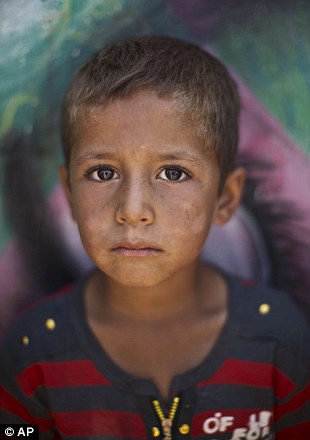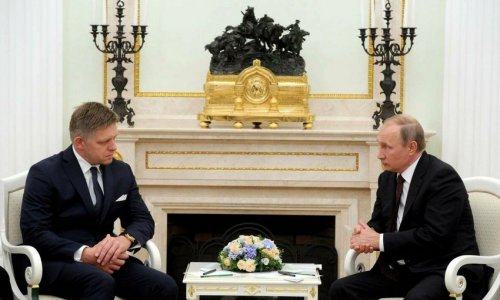Follow us !
Syria’s abandoned children - PHOTO
World
21:30 | 01.08.2014

Syria’s abandoned children - PHOTO
At Jordan's Zaatari refugee camp near the border with Syria, the horror of the neighbouring country's civil war can be seen in the faces of its youngest refugees. More than 50,000 children under the age of 18 call the wind-swept, massive desert camp home. All have stories about the war, like 11-year-old Amal Qalloosh, who fled her home near the city of Daraa with her family after a government bombing.'On the way here, there was a lot of shelling,' Qalloosh said. 'It was terrifying but we made it all safe to the camp.'Some children work in Zaatari, while the lucky attend school at the camp.Muhammed Muheisen has photographed just some of the young Syrian refugees in Jordan's Zataari refugee camp. As Muslims celebrated Eid al-Fitr this week, marking the end of the holy month of Ramadan, some children received new clothes from aid agencies and played. Although everyday life on the camp is obviously hard for these youngsters. 'I have no more control of my children,' said Amani Sbaihi, a mother of seven whose two brothers fought with rebel forces and were killed by Syrian government troops. 'They are getting old so young. It's so difficult to have authority over them in such an environment.' More than 2.8 million Syrian children inside and outside the country - which is nearly half the school-aged population - cannot get an education because of the devastation from the civil war, according to the U.N. children's agency, UNICEF. That number is likely higher, as UNICEF can't count the children whose parents didn't register with the United Nations refugee agency. UNICEF estimates more than 10,000 children have died in the violence. Others suffer from emotional problems after experiencing the war. Syrians made refugees by the war in their country, now in its fourth year, number nearly three million across neighboring Lebanon, Turkey and Jordan. Most live in poverty as they hustle for food, jobs, accommodation and health care.Women-headed households face additional burdens: they are often poorer, and many must push their children to work instead of attending school. Their husbands were either killed, captured, badly wounded or divorced.The U.N. says they struggle particularly to pay rent and keep food on the table.Women also say they are sexually harassed by landlords, employers and local charity workers. In the region's conservative societies, they say, women who don't have a male protector are viewed as easy prey and sexually promiscuous.(dailymail.co.uk)Bakudaily.az










